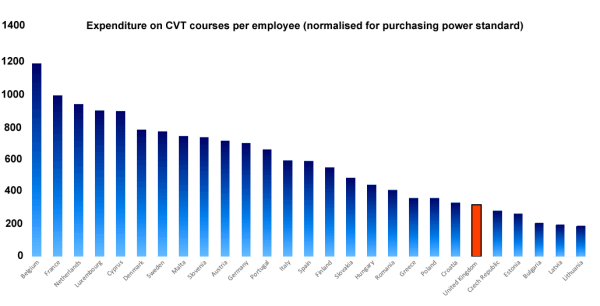The new year has just started. Looking ahead to 2016, one of the greatest challenges for companies (and workers) is the continued expansion of the skills gap — the disconnect between the needs and expectations of today’s employers and the current skills of workers.
Investing in advanced professional development of employees is beneficial, not just for company morale, but also for a corporation’s bottom line.
Employee training is therefore becoming more of a priority. Entrepreneurs in industries and countries all over the world have decided to concentrate their investments in training their current employees. The alternative being the hiring of new people who need to be trained from the beginning anyway.
Over the past decade, the UK economy has weathered through an economic downturn that crippled a number of other European countries. Economic motives have led a number of young job seekers to leave their homeland and migrate to the UK.
That’s why the UK is a country where the growth and success of the workforce is seen as vital. A new research shows that almost 90% of British companies provide training to their employees, the highest percentage in Europe. In the UK, the workforce training has always been key to gain success, but surprisingly in the past years the trend has nosedived. Employers in the UK are investing much less than their European counterparts. All British companies provide training, but they invest less in professional development.
Activia Training, a UK corporate training provider, has conducted a study about the investment in training for employees across Europe. It examines how the quality of corporate training in the UK compares with other European countries. The data, collected from official reports from the European Commission and Eurostat, shows that in the UK, the expenditure on CVT courses per employee, (normalized for purchasing power standard) is one of the lowest in the EU. Countries such as Belgium, France and the Netherlands are leading the way, while only five countries invest less money in training than the United Kingdom.
The UK ranks 22nd in the European Union, not a good result, even though a higher percentage of British companies provide training to their employees. Even less developed countries such as Greece, Poland and Croatia rank higher. Some countries have started using new training tools, sending their employees to attend specific courses and investing money in their development.
An even closer look at numbers on worker skills, and business growth requirements, indicate that a storm is brewing. If businesses don’t act soon and quickly, the UK’s economic stability might be eclipsed by the growth aspirations of other developing countries within the European Union, and maybe even outside.
